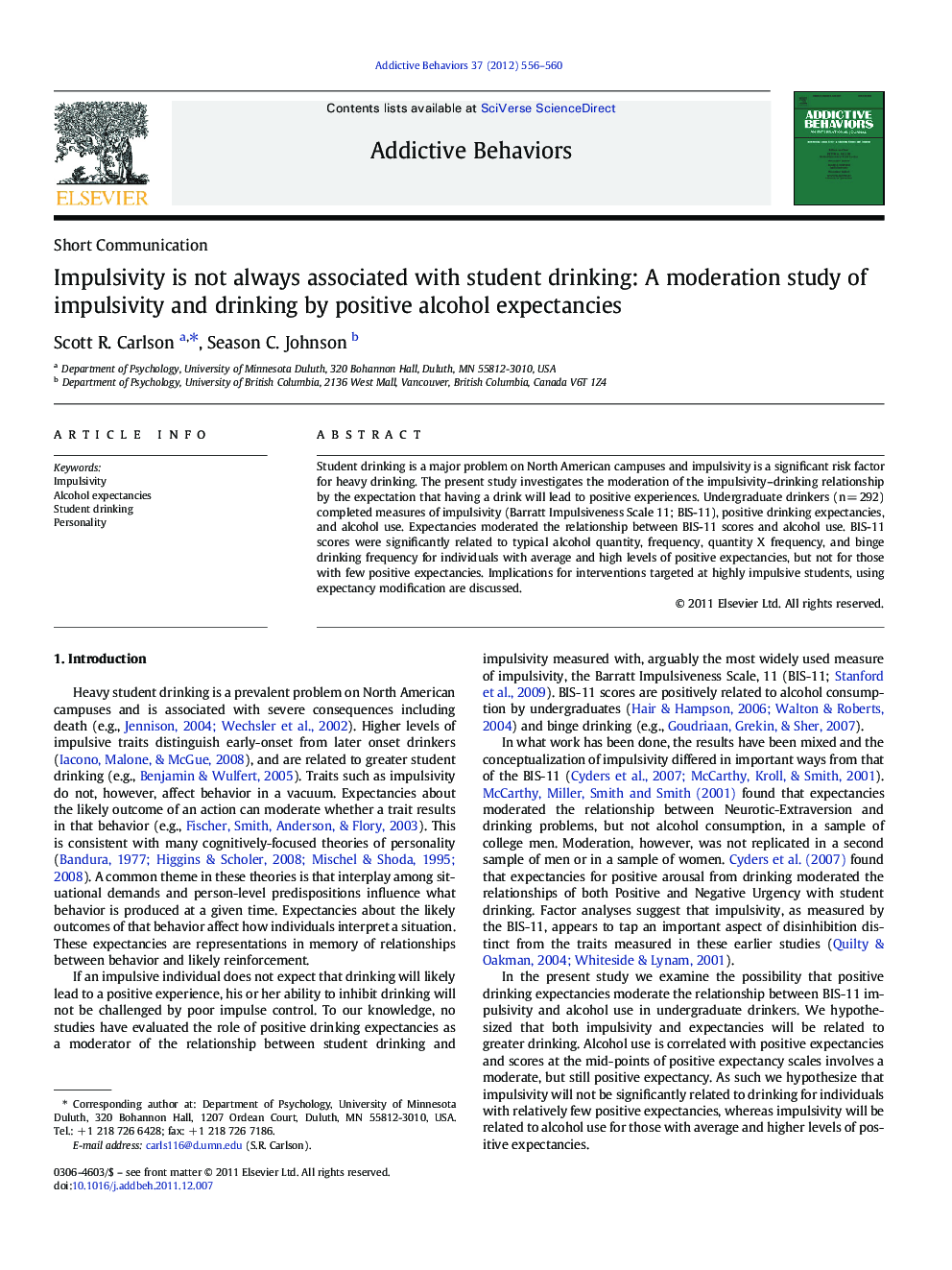| Article ID | Journal | Published Year | Pages | File Type |
|---|---|---|---|---|
| 899159 | Addictive Behaviors | 2012 | 5 Pages |
Student drinking is a major problem on North American campuses and impulsivity is a significant risk factor for heavy drinking. The present study investigates the moderation of the impulsivity–drinking relationship by the expectation that having a drink will lead to positive experiences. Undergraduate drinkers (n = 292) completed measures of impulsivity (Barratt Impulsiveness Scale 11; BIS-11), positive drinking expectancies, and alcohol use. Expectancies moderated the relationship between BIS-11 scores and alcohol use. BIS-11 scores were significantly related to typical alcohol quantity, frequency, quantity X frequency, and binge drinking frequency for individuals with average and high levels of positive expectancies, but not for those with few positive expectancies. Implications for interventions targeted at highly impulsive students, using expectancy modification are discussed.
► College drinking was associated with the Barratt Impulsiveness Scale-11. ► There was an interaction between impulsivity and positive drinking expectancies. ► Impulsivity and drinking were not related at low levels of positive expectancies.
